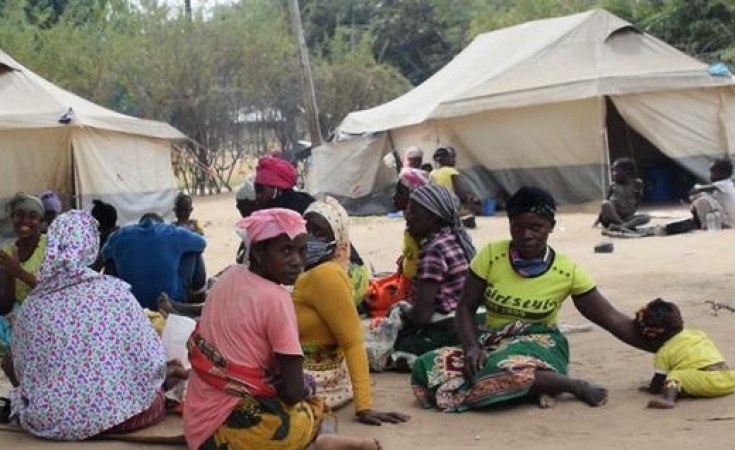Geneva — Attacks and fear of attacks in Cabo Delgado, northern Mozambique, have triggered the displacement of almost 100,000 people, including more than 60,000 children, in the past month, the UN Children's Agency, Unicef, is reporting.
"Children separated from their families are at risk of violence and exploitation, including recruitment and use by armed groups," said Guy Taylor of Unicef Mozambique, speaking by phone at a UN press conference in Geneva on March 8.
"More than 100 schools in Cabo Delgado and Nampula provinces have had to close due to insecurity, affecting the learning of over 50,000 children."
Security insecurity had led to children and families being cut off from essential services, including health, nutrition, water, sanitation and hygiene, and child protection services, Taylor said.
Unicef's comments came after the UN High Refugee Agency chief, Filippo Grandi, and the UN Special Adviser on Internal Displacement, Robert Piper, called for a renewed international commitment to finding solutions for displaced people in Mozambique.
The southern African county has faced challenges linked to violence from non-state armed groups, including Islamist extremists, since 2017, as well as the adverse impacts of the climate emergency, with over 1.2 million internally displaced.
Development investment
"We need to go further, look beyond humanitarian aid, and strengthen development investment in the country -- to create conditions for lasting peace and a viable future for the displaced and their hosts," said Grandi.
Many of the more than 45,000 are at serious risk after fleeing to the Erati district in Nampula, the province immediately south of Cabo Delgado, an area experiencing a cholera outbreak.
"In the chaos created by displacement, many children have become separated from their families. Unicef has so far registered 182 cases of separated children since the latest attacks in Chiure district on February 24," said Taylor.
Unicef is working with UN partners and the government in Mozambique.
"Without access to nutrition services, displaced children experiencing severe acute malnutrition are at serious risk," said the Unicef official.
"The psychological impact on children and families is also tremendous. Our teams on the ground in Cabo Delgado report that children are traumatized and having difficulty coping with the hardships they are experiencing," said Taylor.
Unicef estimates that $5 million is urgently needed to meet the immediate needs of 90,000 people over the next 90 days.
"No additional resources have been mobilized so far, leaving the response under capacity and overstretched," Taylor noted.
Unicef's work includes treating cholera, deploying mobile health brigades to deliver immunization and other health services, bringing clean water to the displaced, constructing emergency latrines, and maintaining sanitation infrastructure.
The UN agency is setting up child-friendly spaces where children can play and receive psychosocial support, distributing teaching and learning materials, setting up temporary learning spaces, and sharing information via megaphones, mobile media units, theatre groups, religious leaders, and community radio.
RELATED
Humanitarian Crisis Worsens in Northern Mozambique As Thousands Flee Violence [UNHCR)
Violence Continues to Displace and Traumatise Thousands in Cabo Delgado (MSF)


